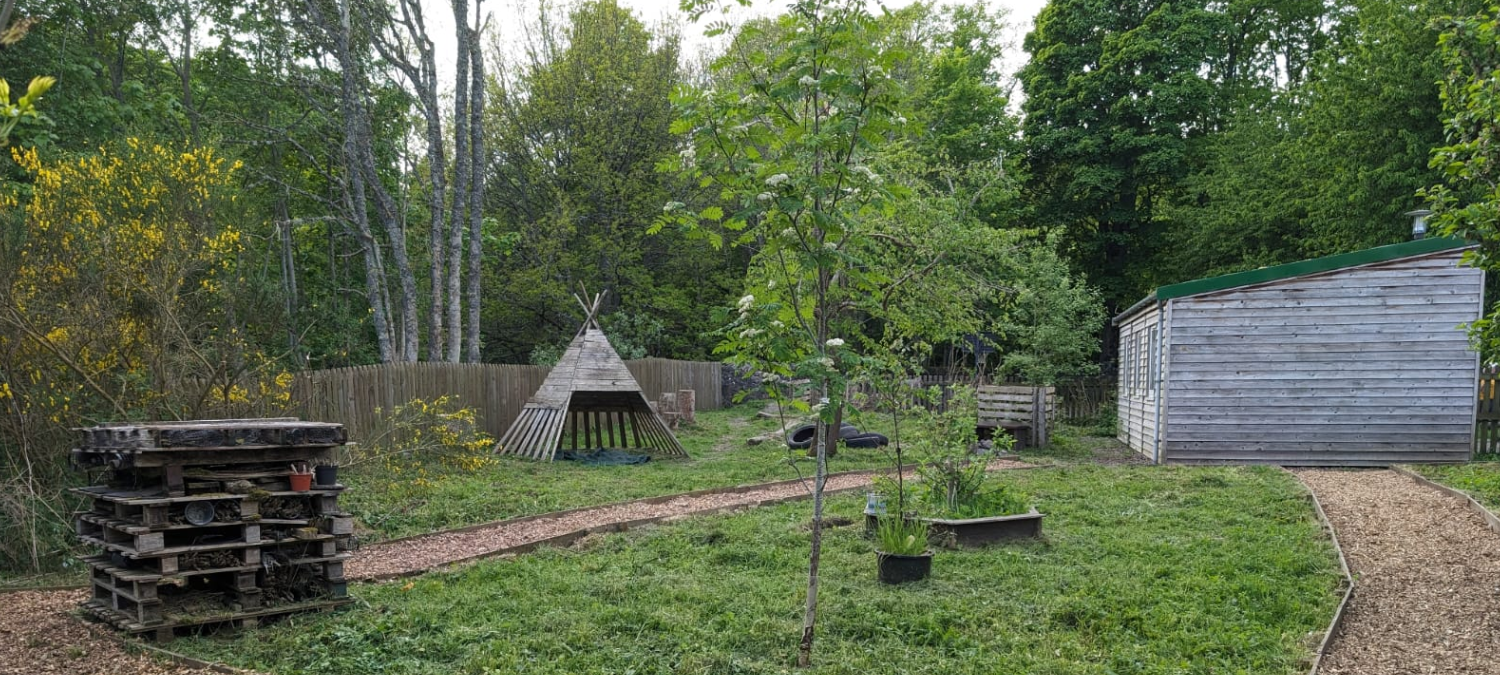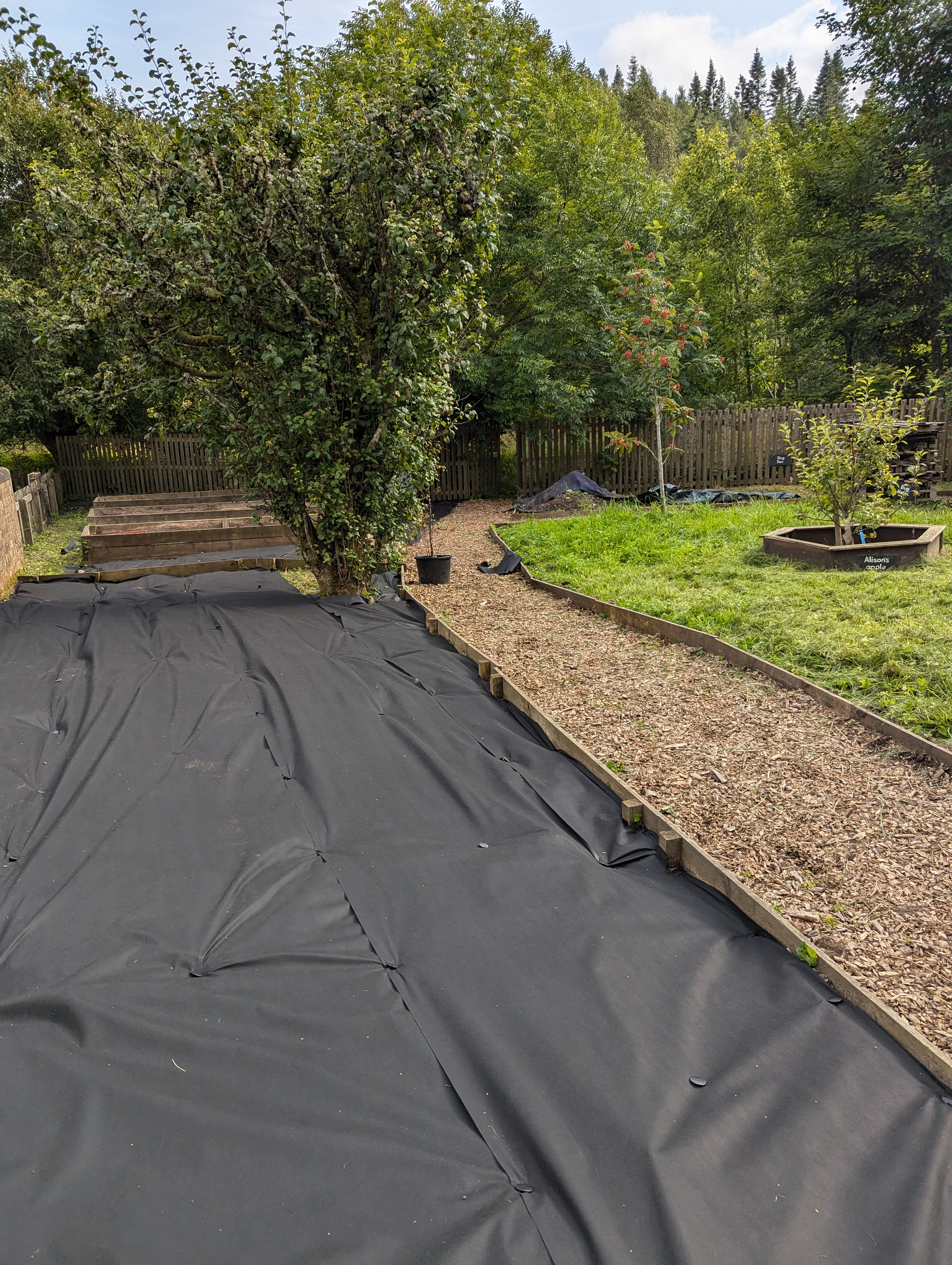
Heriot Primary School grows community spirit with the Wild Garden
The Heriot Primary School Community Garden Project showcases the value of the IVAR principles in community funding.
Introduction to IVAR Principles
Foundation Scotland's commitment to the IVAR (Institute for Voluntary Action Research) Principles guides its approach to fostering meaningful partnerships between funders and community organisations, as exemplified by the Wild Garden project at Heriot Primary School.
In 2021 Foundation Scotland signed up to the IVAR ‘Eight Commitments’ to ensure that we are an open, trusting and flexible funder. IVAR calls on funders to adopt simpler, more flexible practices that make life easier for those they fund. Their ambition is to see these commitments become standard practice in the sector.
The project embodied key IVAR principles through its community-led development, emerging from documented local needs and supported by multiple community groups, while demonstrating how funders can balance community autonomy with practical oversight. By supporting this multi-generational initiative that will benefit school children, toddlers, parents, and volunteers alike, Foundation Scotland illustrates how the IVAR principles can guide funders in creating lasting positive change while building genuine partnerships that strengthen communities.
Project Background
Within this Scottish Borders community, Heriot's primary school stands as one of three vital community spaces. The Heriot area has limited green communal spaces, and a review found that the school grounds held promise given its unused raised beds and under-utilised open areas. A 2018 resident survey revealed strong environmental interest, with 30% of locals eager to participate in green initiatives, yet the school staff and Parent Council lacked the technical expertise to develop the area to its full potential.
The vision centred on creating an integrated community garden and wildlife hub within the school grounds, designed for both educational and community use. Drawing on expertise from established gardens in Innerleithen and Peebles, the planning process carefully considered how to develop a space that would serve multiple community needs while remaining sustainable. This consultative approach ensured the project would build on proven success while adapting to Heriot's unique space.
Local Opportunities
The project fulfilled three core Fund objectives by fostering community engagement, strengthening local connections, and developing vital community assets, while aspiring to create a new employment opportunity.
Regular users included diverse groups from Heriot Babies & Toddlers to the after-school club, with over 50 weekly participants spanning pupils, families, and volunteers. The initiative complemented Scottish Borders Council's food production strategy while addressing well-documented national and international environmental priorities at a local level.
Beyond physical improvements, the project delivered enhanced environmental education, outdoor engagement, community cohesion, and improved wellbeing for participants.
Fund Support
In 2019, Heriot Parent Council submitted a funding request to the Carcant (Heriot) Fund for the Wild Garden project. The Heriot Decision Making Panel approved total funding of £9,221.95, split into two tranches.
The initial funding phase provided resources for essential site equipment and development materials. As the project evolved, the second phase of funding was designated for a part-time maintenance position.
The Challenge
The first tranche of funding was released in 2019 and the project commenced, however, due to COVID-19 the project progressed slowly and then eventually came to a halt. During this time, the original members of the Parent Council responsible for the delivery of this project moved on as their children left primary school, and so the project initially remained dormant post-pandemic.
In 2023, a new Parent Council formed, and part of their duties was to reignite the project and progress it forward.
Emerging in 2024
In 2024, the new Parent Council revitalised the dormant project, completing phase one with the original funding by clearing the space and acquiring maintenance equipment.
Committed to the project's success, the Parent Council engaged in fresh community consultations, including the primary school, and sought expertise from a local horticultural consultant. This renewed engagement led them to approach the Fund with a variation request to modify the project's scope.
Project Scope Change
The revised scope focused on enhancing biodiversity through the addition of compost, seeds, and a starter pond, while retaining the provision for part-time garden maintenance from March to September 2025.
The Panel approved the reallocation of £3,740.00 to support this modified vision and the overall project should be completed in spring 2025.
Impact & Outcomes
The Wild Garden project at Heriot Primary School has and will continue to deliver substantial benefits to the Heriot community. With over 50 regular weekly users, including pupils, toddler groups, after-school clubs and community volunteers, the plan is for the garden to become a vibrant hub for outdoor learning and social connection.
Beyond its physical transformation, the project has yielded meaningful social and educational outcomes.
Participants have gained valuable environmental knowledge and practical gardening skills, while the shared space has strengthened community bonds and improved wellbeing through outdoor engagement. Despite initial setbacks during the COVID-19 period, the project's revival in 2024 demonstrates community resilience. The addition of biodiversity elements, including a starter pond and enhanced growing spaces, promises to further enrich the educational experience whilst creating a lasting legacy for future generations at Heriot Primary School.
IVAR for meaningful success
The Heriot Primary School Community Garden Project showcases the value of IVAR principles in community funding. By adopting flexible timelines and adaptive grant management, the Foundation Scotland has enabled organic project growth which has ultimately been successful in creating a local community asset despite challenges to timeframes and changing personnel.
Moving beyond rigid targets, the funder's adaptable approach enabled a sustainable plan reflecting local capabilities and aspirations. This collaborative relationship fostered enhanced outcomes: stronger community bonds, and innovative partnerships.
The project's success demonstrates how place-based, flexible grant-making can create more meaningful community change than traditional, more restrictive, funding models.




